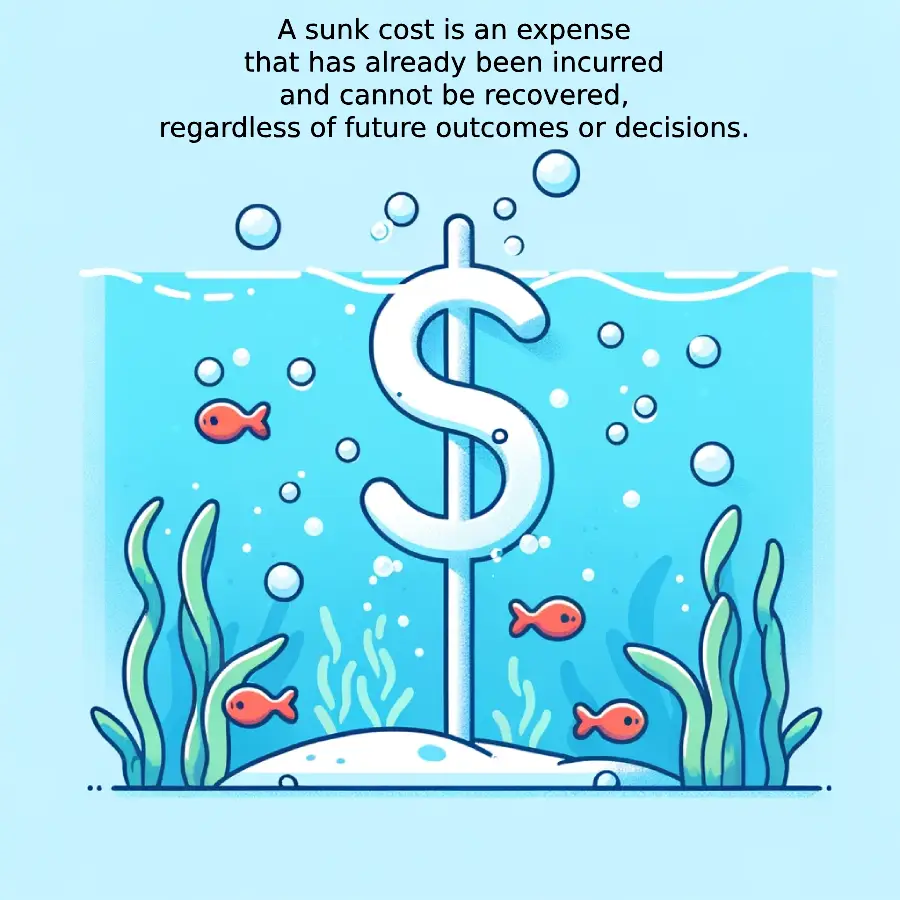Definition:
A sunk cost is a cost that has already been incurred and cannot be recovered. These costs are independent of any future events and should not influence current or future decision-making processes.
Examples:
- R&D Expenses: Money spent on research and development that cannot be recouped.
- Marketing Campaign: Funds allocated to a past advertising campaign.
- Training Programs: Costs of employee training that have already been executed.
Key Points:
- Irreversibility: Once a cost is sunk, it is irreversible and should not be considered in new project evaluations.
- Decision-Making: Rational decision-making requires ignoring sunk costs, focusing only on prospective costs and benefits.
- Psychological Aspect: People often struggle with ignoring sunk costs due to emotional attachment and cognitive biases, leading to the “sunk cost fallacy.”
Sunk Cost Fallacy:
This fallacy occurs when individuals continue a project or endeavor due to the amount already invested, rather than evaluating the current and future potential.
Examples of Sunk Cost Fallacy:
- Staying in a Bad Movie: Continuing to watch a movie despite not enjoying it because the ticket has been purchased.
- Continuing a Losing Investment: Holding onto a failing investment because significant money has already been invested.
Overcoming Sunk Cost Fallacy:
- Awareness: Recognizing the influence of sunk costs on decision-making.
- Objective Analysis: Evaluating decisions based on future benefits and costs.
- Cost-Benefit Analysis: Focusing on the potential return of continuing versus stopping an investment or project.
Practical Applications
- Business Decisions:
- Companies should ignore sunk costs when evaluating new projects.
- Focus on future cash flows and potential profitability.
- Personal Finance:
- Avoid justifying additional expenses based on previous investments.
- Make financial decisions based on current value and future benefits.
- Policy Making:
- Governments should disregard sunk costs in public projects, aiming for the most efficient allocation of resources.
By understanding and correctly applying the concept of sunk costs, individuals and organizations can make more rational and economically sound decisions, avoiding the pitfalls of the sunk cost fallacy.

